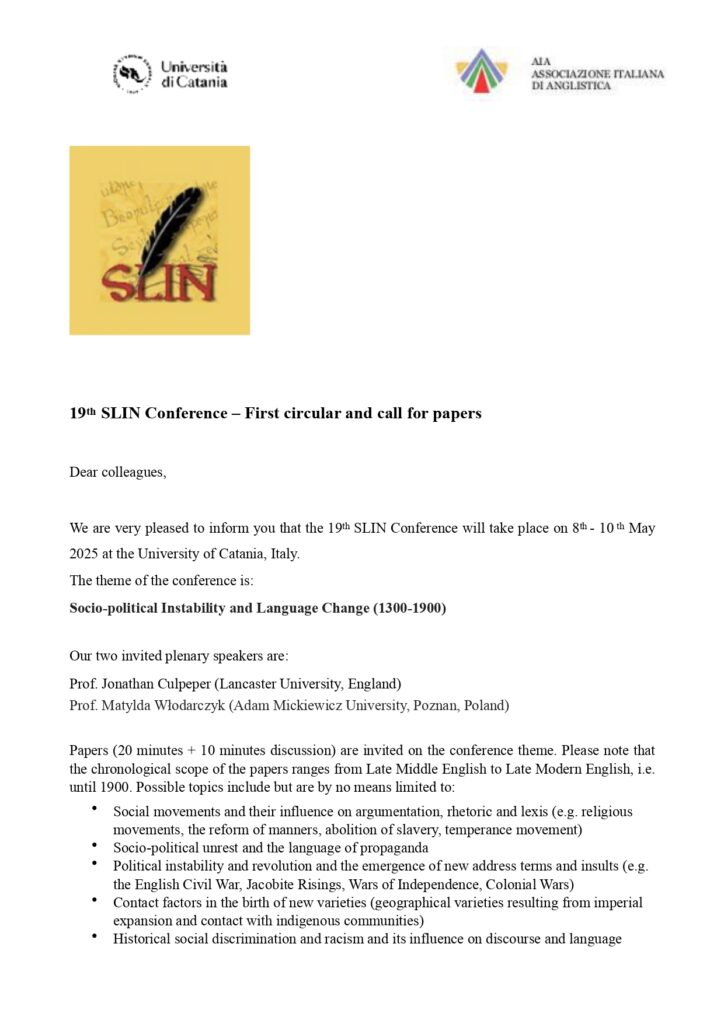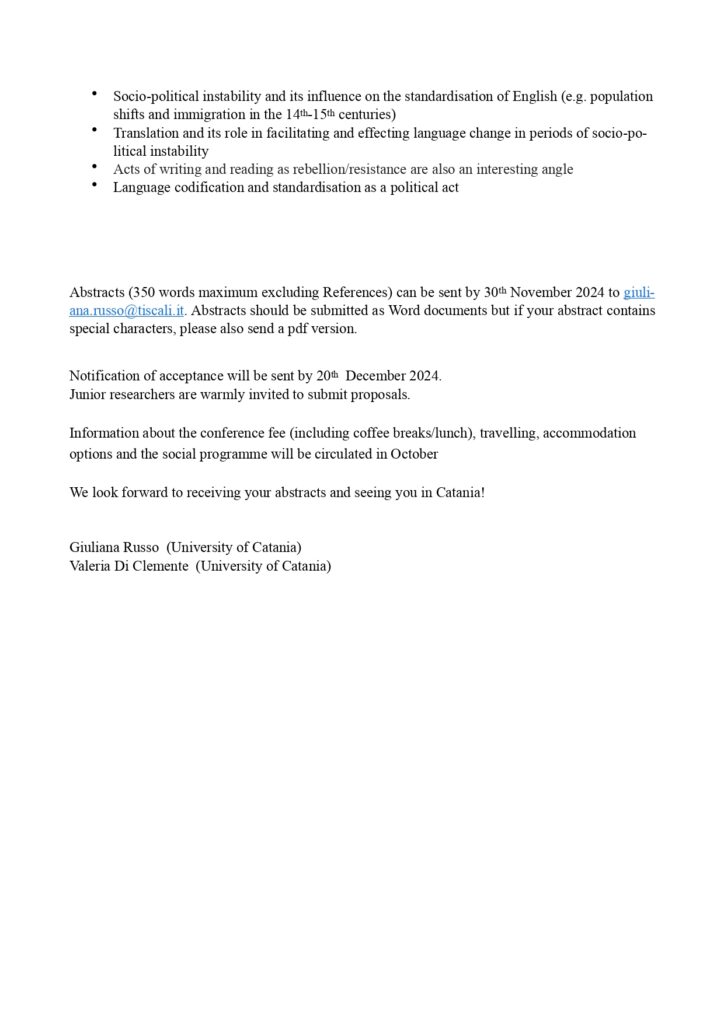May 8th to May 10th, 2025
University of Catania
The 19th SLIN Conference will be held from May 8th to May 10th, 2025, at the University of Catania. Under the theme “Socio-political Instability and Language Change (1300–1900),” the conference invites scholars to explore the complex relationships between periods of social instability and language evolution.
Esteemed plenary speakers, Professor Jonathan Culpeper from Lancaster University in England and Professor Matylda Włodarczyk from Adam Mickiewicz University in Poland, will offer stimulating insights from leading voices in the field.
Researchers are encouraged to present papers that address various aspects of the conference theme, covering a chronological scope from Late Middle English through Late Modern English, concluding in 1900. Sug-gested topics encompass a broad array of socio-political influences on language, including how social movements such as religious reform, the temperance movement, and the abolition of slavery have influenced argumentation, rhetoric, and lexical choices.
Other potential discussions include the effects of socio-political unrest on propaganda language, and how po-litical instability—such as the English Civil War, the Jacobite Risings, and the Wars of Independence—spurred the creation of new forms of address and expressions of contempt. Topics may also cover the impact of imperial expansion and contact with indigenous communities in creating new regional language varieties, as well as the influence of historical social discrimination and racism on discourse and language
Further areas for exploration include the influence of socio-political instability on English standardization, and the role of translation in facilitating and effecting language change in periods of socio-political unrest.
Papers may also examine acts of reading and writing as forms of resistance, and consider language codification and standardization as inherently political acts.
The conference will provide a platform for researchers to investigate these dynamics, offering a valuable venue for debate and reflection on how historical socio-political factors have shaped the linguistic landscape of English over the centuries.


